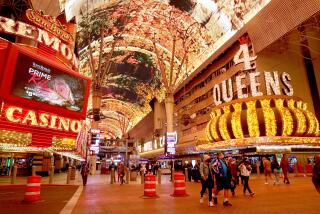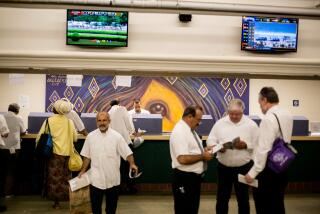Card clubs in L.A. County reopen for outdoor gaming
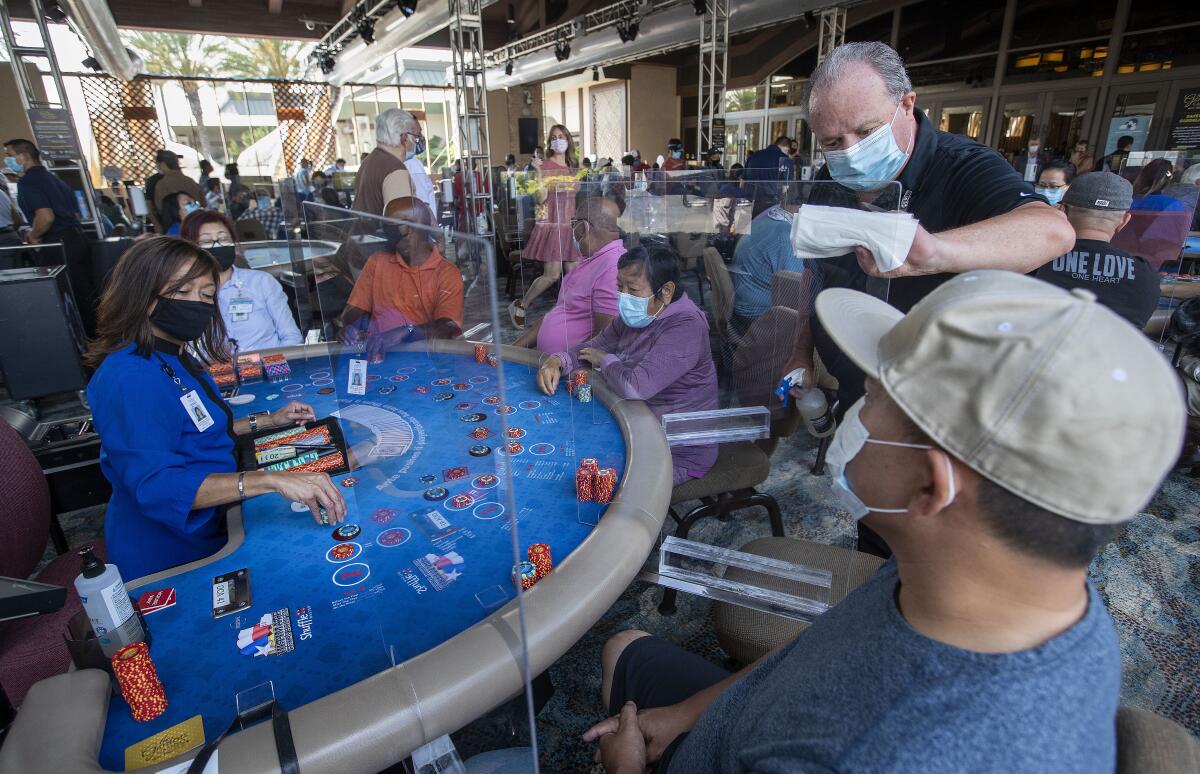
Card clubs in Los Angeles County reopened Monday with health precautions, drawing a stream of gamblers and prompting expressions of relief from city leaders who have struggled without the key source of tax revenue.
The county’s Board of Supervisors and Department of Public Health gave the county’s seven card clubs the green light to welcome customers back — but only in outdoor settings, with players and employees wearing masks and with barriers separating gamblers who are less than six feet apart, among other restrictions.
Before the COVID-19 pandemic, the card rooms employed more than 10,000 workers and generated as much as 70% of the tax base for the small, working-class communities where they are located.
Some of the clubs are still in the midst of reopening and calling back previously furloughed employees so it is difficult to estimate how many workers will be brought back under the new guidelines. The Commerce Casino reported rehiring about 60% of its approximately 2,500 workers.
In the City of Commerce, where the Commerce Casino generates about 44% of the city’s general fund budget, the closing of the card club led the city to furlough 230 employees and cut the rest of its workers’ salaries 7%.
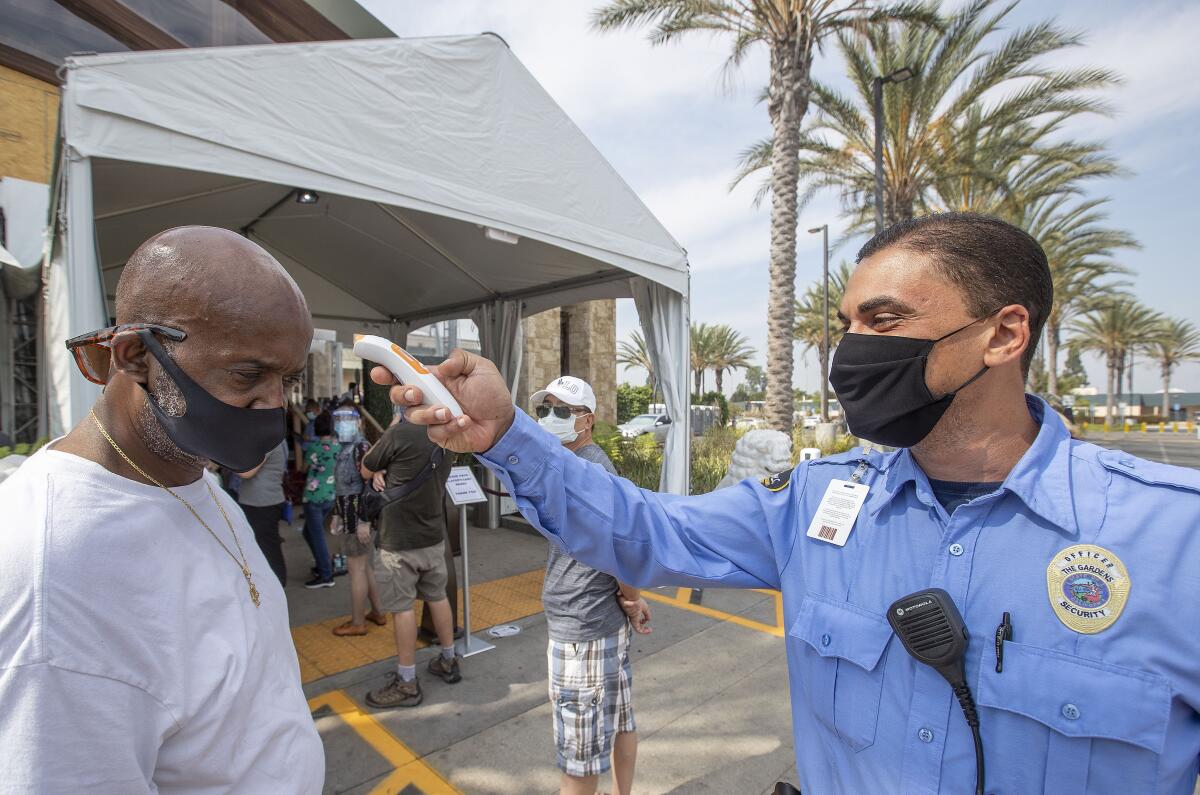
“Without the casinos, our lifeline, we are looking at more [budget-tightening] actions at the beginning of the year,” said Edgar Cisneros, the city manager, adding that he hopes to rehire all of the city’s furloughed workers and reinstate the regular salaries once the casino is in full operation. “We are optimistic we will be able to recoup those revenues but also put people back to work.”
Casino operators said a steady stream of gamblers began arriving Monday morning, signaling pent-up demand to socialize and play the odds.
“It’s a baby step toward opening kind of gradually, like restaurants,” said John Griffo, director of business development at the Commerce Casino.
Griffo and other casino operators vowed to take the health precautions seriously so they can stay open. They want to avoid a repeat of what happened in June: The county’s card clubs and some other indoor businesses opened for the first time since March, but after 10 days, the state — alarmed by a surge in coronavirus cases in the region — ordered them to shut again.
Citing tribal sovereignty, more than a dozen casinos on tribal reservations in California reopened in May despite Gov. Gavin Newsom’s pleas to keep such indoor businesses shut. Since then, most tribal casinos in the state have reopened, adopting individual health and safety protocols developed with the assistance of state, federal and local health agencies.
On Monday, the Commerce Casino operated about 60 gaming tables in two tented areas — one that was previously used for parking and one where an outdoor smoking area had been. Before the pandemic, the casino operated 277 tables.
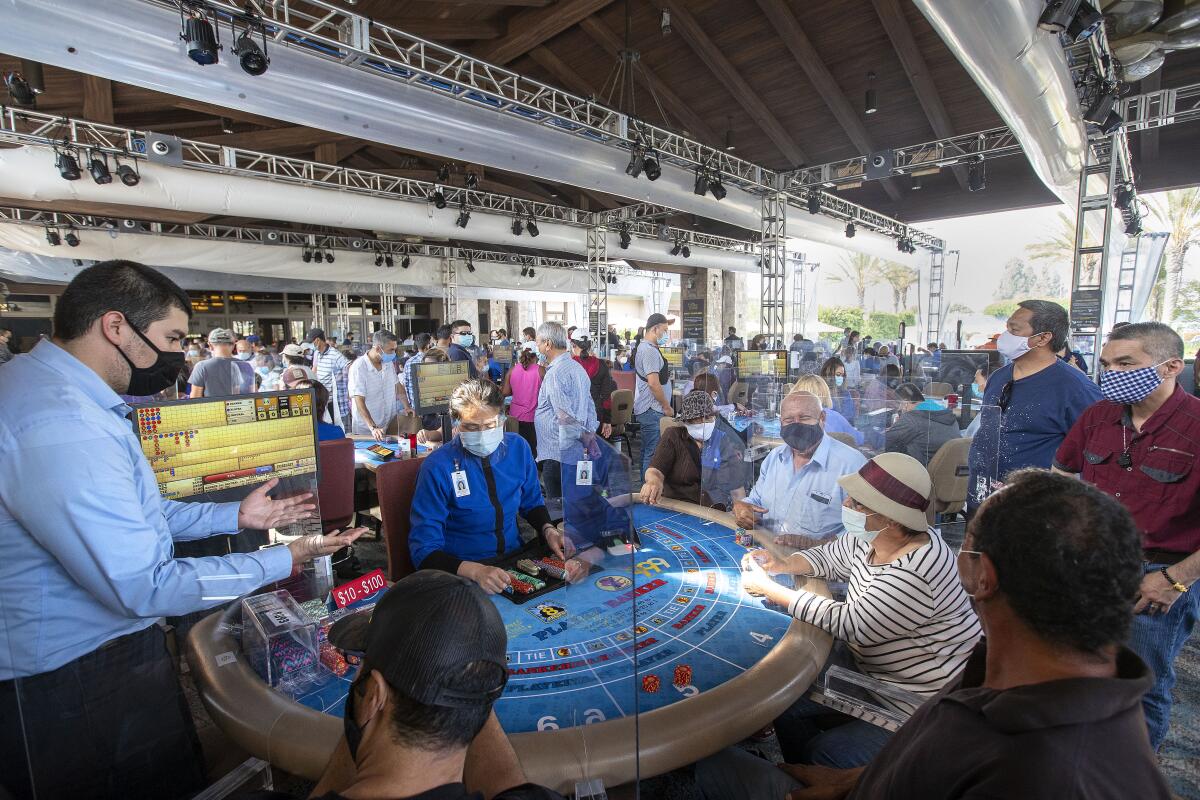
Under the new county protocols, all gamblers and casino employees must wear masks at all times except when eating or drinking in designated areas, and must undergo screening for chills, fever and coughing before entering the outdoor tented area; no food or drink is allowed at the gambling tables; and no spectators are allowed to stand behind the players.
The number of players at each gambling table must be limited “such that patrons and employees are able to maintain physical distancing of at least six feet at all times,” and if not, physical barriers such as plexiglass sheets must be installed, according to the county’s protocols. At the Commerce Casino, a maximum of eight players are allowed to play poker at the same table, with fewer players allowed at tables for games such as pai gow and baccarat.
If three or more employees at a casino are infected with the coronavirus in the span of 14 days, the casino must notify the county Department of Public Health.
Compliance is to be monitored by county health officials as well as state gambling regulators.
Casino operators met with county Public Health Director Barbara Ferrer on June 28 to discuss reopening. According to casino representatives, Ferrer was reluctant to offer reopening guidelines until she gauged the coronavirus trends following the Labor Day holiday weekend. Once she was satisfied that trends were improving, Ferrer sought approval for the health protocols from the Board of Supervisors, casino officials said.
The partial reopening of the card clubs means employees can collect a salary and provide for their families again, said Ralph Franklin, a City Council member in Inglewood, which is home to the Hollywood Park Casino. The city has lost about $3 million in revenue because of the closure of the casino, he said, adding that Inglewood dipped into a reserve fund to avoid layoffs of city workers or cuts to programs.
“Now we have a chance to have employees be gainfully employed,” Franklin said.
Gardena usually counts on taxes from its two casinos — the Hustler Casino and the Larry Flynt’s Lucky Lady Casino — for about 14% of its general fund revenue. Since their closure, the city has furloughed employees and cut city programs.
The card clubs’ reopening “is great,” Mayor Tasha Cerda said. “We’ve really been pushing for this.”
Hawaiian Gardens, home to the Gardens Casino, which generates about 70% of the city’s funding, has laid off nearly 40% of the city staff and eliminated programs for young people and seniors since the casino closed, said Ernie Hernandez, the city manager.
He called the new health protocols “appropriate COVID-19 protections and limitations that will bring back thousands of jobs and much-needed revenue to our city and across the county.”
More to Read
Inside the business of entertainment
The Wide Shot brings you news, analysis and insights on everything from streaming wars to production — and what it all means for the future.
You may occasionally receive promotional content from the Los Angeles Times.

